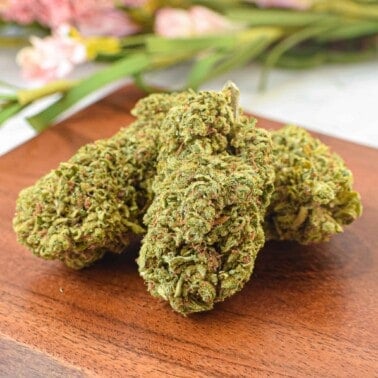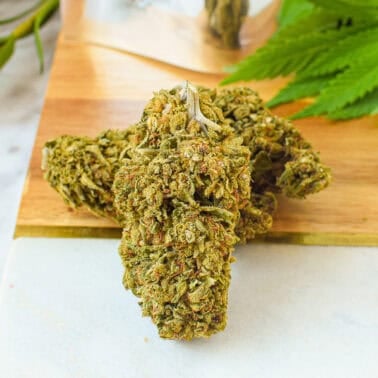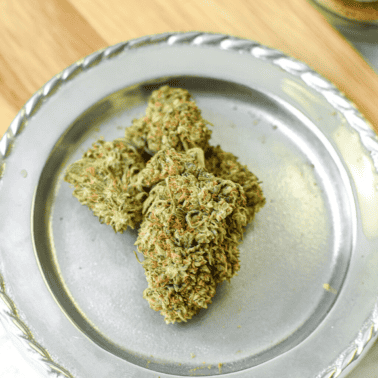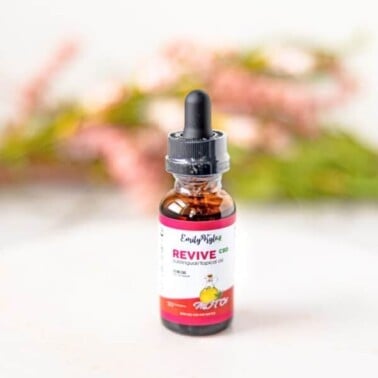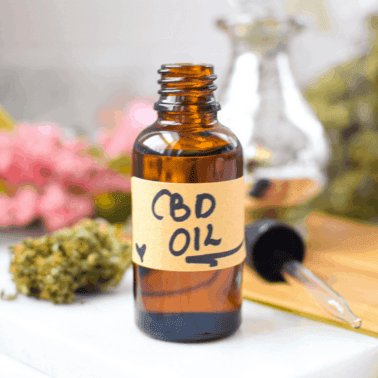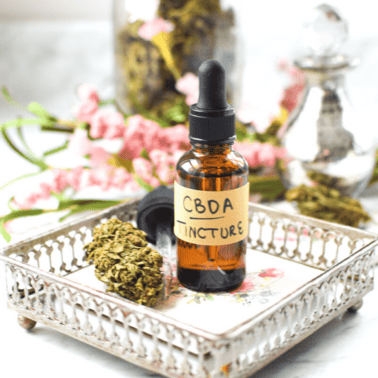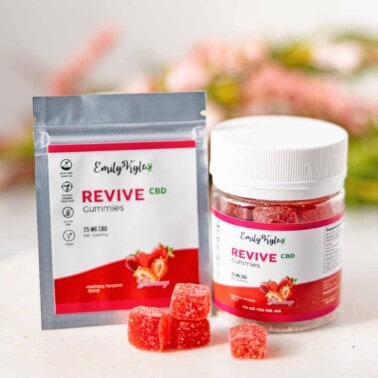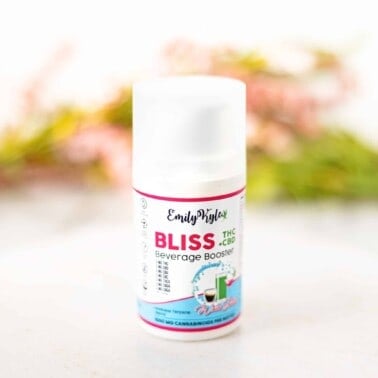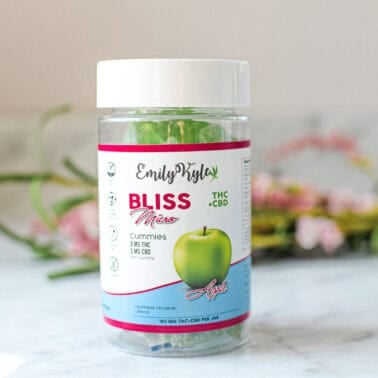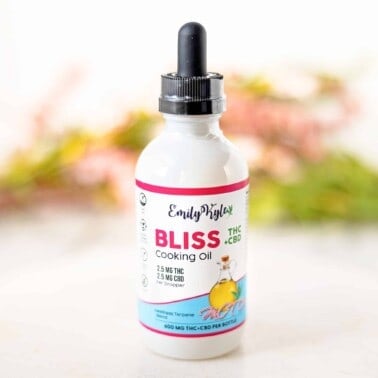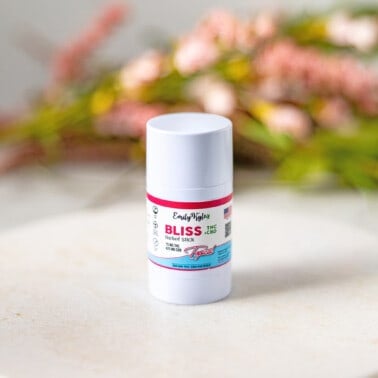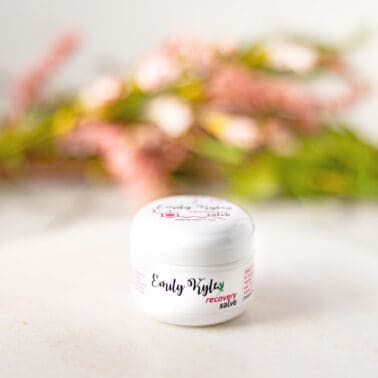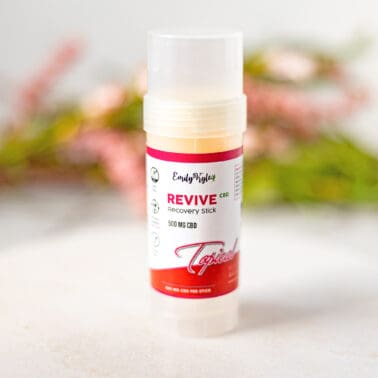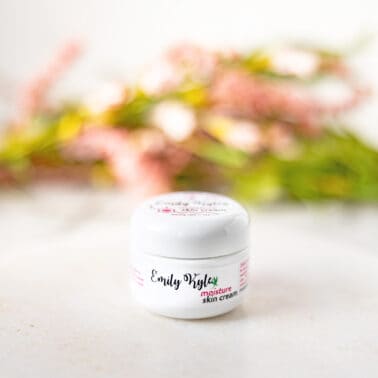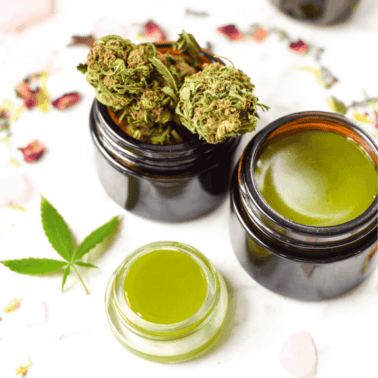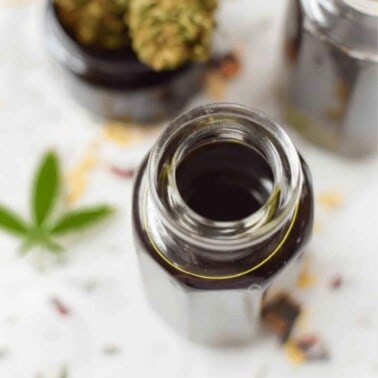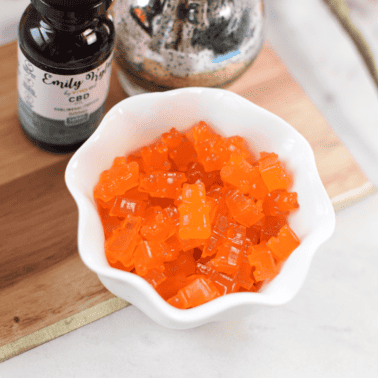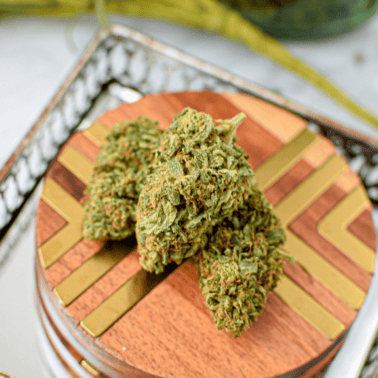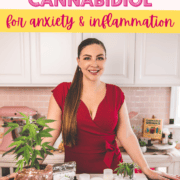Chances are, if you’re here, you’ve already heard all about CBD and its potential benefits. And it’s totally understandable if you’re still cautious or unsure – but still curious about CBD and how it can work for you. Rest easy; you’re in the right place! Here, I’ll explain everything you need to know about CBD, from the science to its potential benefits and risks.
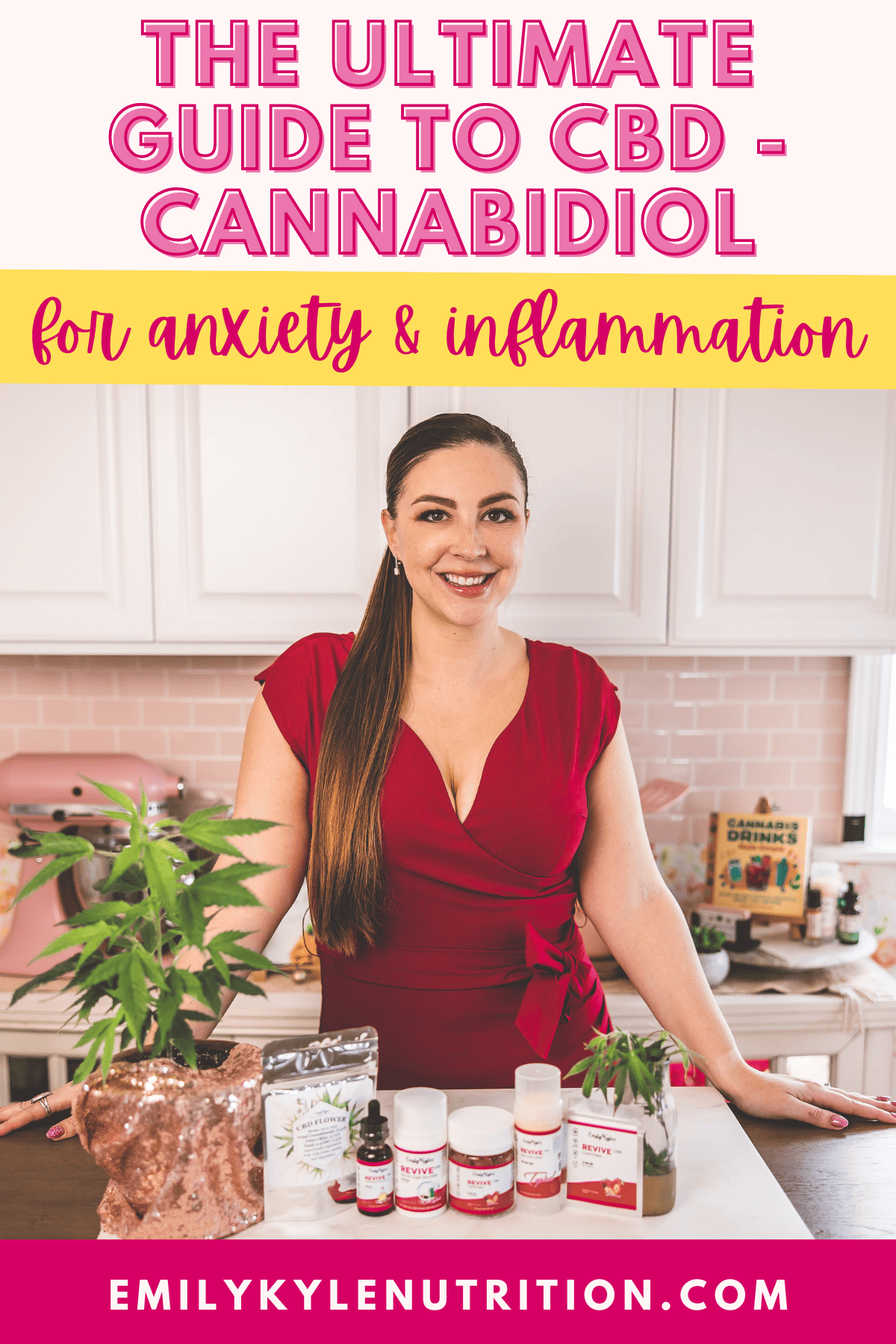
Table of Contents
Article Features
- What you need to know about both CBD and CBDA
- All of the different ways to use and consume CBD for best results
- Want to start with safe products? Have my premium CBD products delivered directly to your door – now shipping across the US!
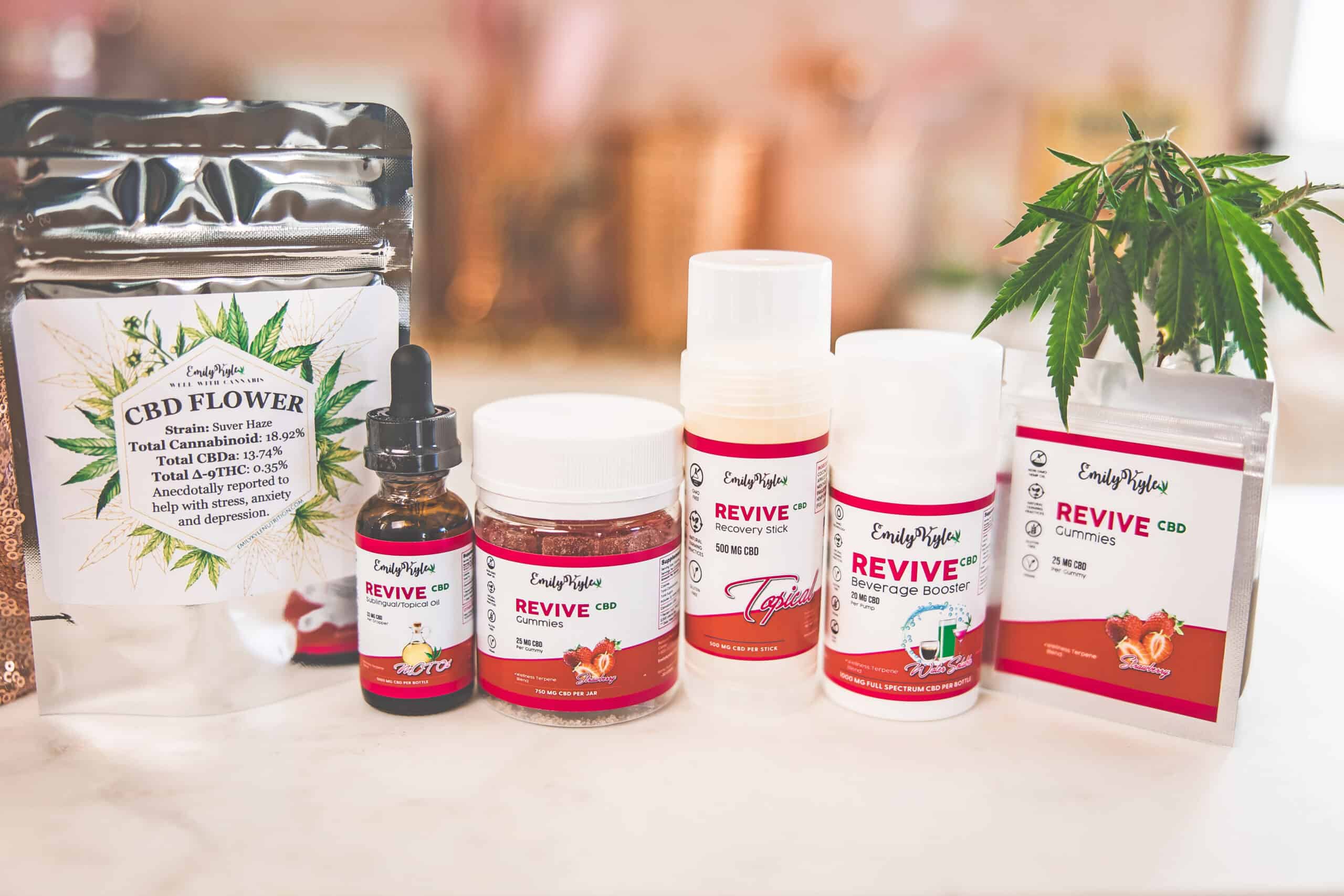
Why You Will Love This Guide
In our fast-paced world, where synthetic drugs and prescription medications often come with unwanted side effects, CBD has emerged as a beacon of hope.
Like me, hopefully, you see a safe, natural plant extract promising many potential benefits – without the disorientating side effects associated with THC.
Even if you’re already a fan of THC, like many members of my Well With Cannabis Community, you might be surprised to discover that your experience may be enhanced by including CBD.
Personally, I was so surprised when I learned that CBD can balance the intoxicating effects of THC, and it made so much sense when I discovered that CBD can help lessen the anxiety that sometimes accompanies THC use.
That’s why today, I want to show you that by incorporating CBD with THC, you can enhance the synergistic effects of the plant, also known as ‘the entourage effect’.
This synergy is believed to help reduce anxiety, improve sleep, manage inflammation, and even achieve greater mental clarity and focus.
By understanding and embracing the ways in which CBD and THC can complement each other, you will be better equipped to make informed decisions about your wellness journey.
Think of having CBD as another tool in your holistic health tool belt, paving the way for a more balanced and harmonious lifestyle. Let’s get started!
🚀 Test Your Knowledge
Coming Soon!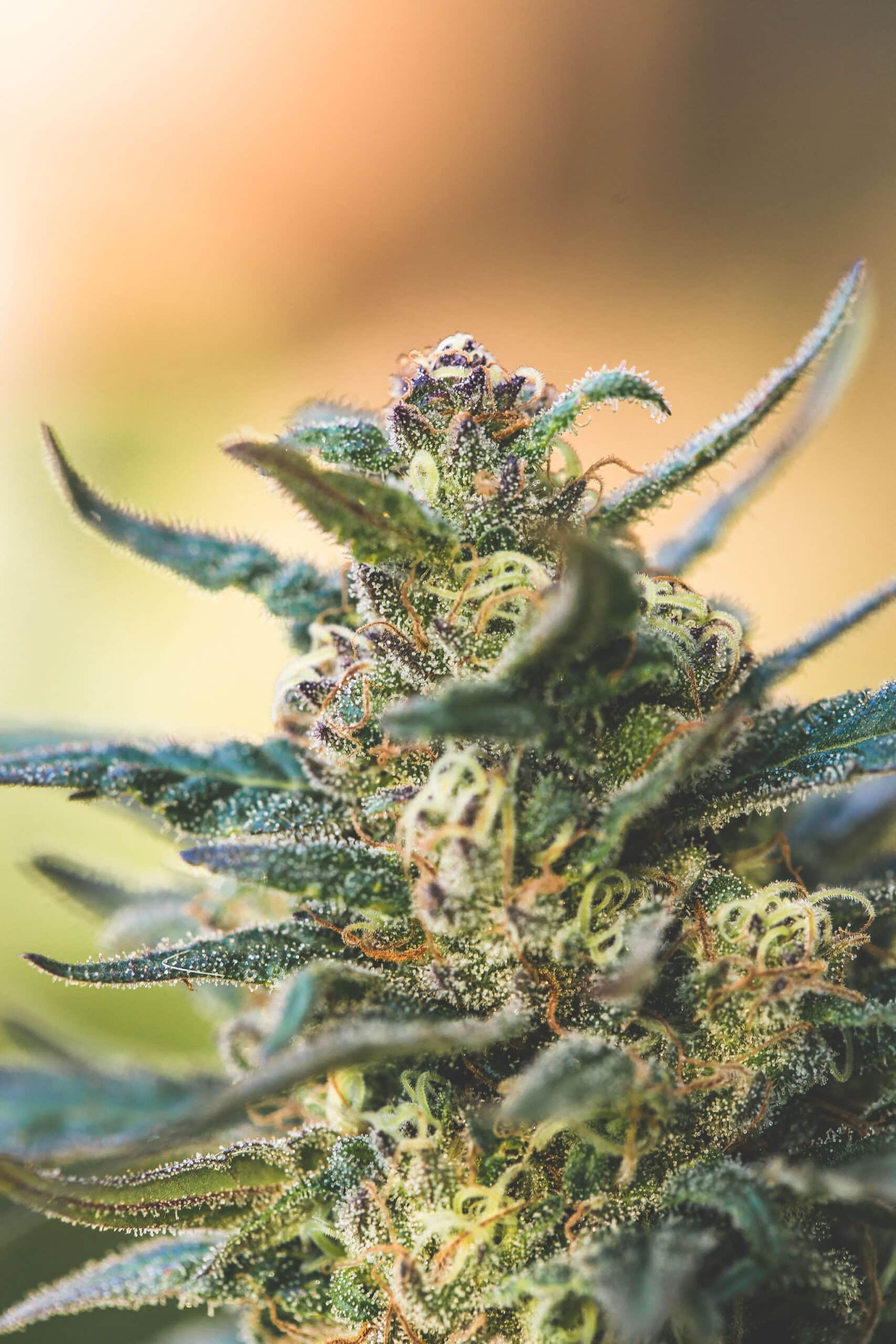
What is CBD?
CBD (cannabidiol) is one of over 100 different cannabinoids found within the cannabis plant.
CBD, or cannabidiol, is essentially the active form of CBDA, which stands for cannabidiolic acid, a compound that naturally exists within the growing cannabis plant.
As a CBD-dominant plant grows, it naturally produces CBDA within the trichomes, similar to how a THC-dominant plant produces THCA.
A process called decarboxylation is required to convert CBDA into the more usable or active form of CBD.
In practical terms, this means exposing the plant material to a certain level of heat—like smoking or baking—which activates the properties of CBD.
Unlike THC, the cannabinoid you may already be familiar with, CBD does not have intoxicating properties and, therefore, does not produce a “high” feeling.
Instead, it plays a more subdued and supportive role, helping nurture our bodies by working with our endocannabinoid system.
This is what makes CBD so alluring for many people looking for the benefits of cannabis – without the “stoned” feeling.
Especially for our elderly folks, those who need relief while working, and especially busy moms and dads.
In my years of experience, in most cases, it is a combination of CBD and THC together in proper ratios that results in the most satisfying and comfortable experience for each person.
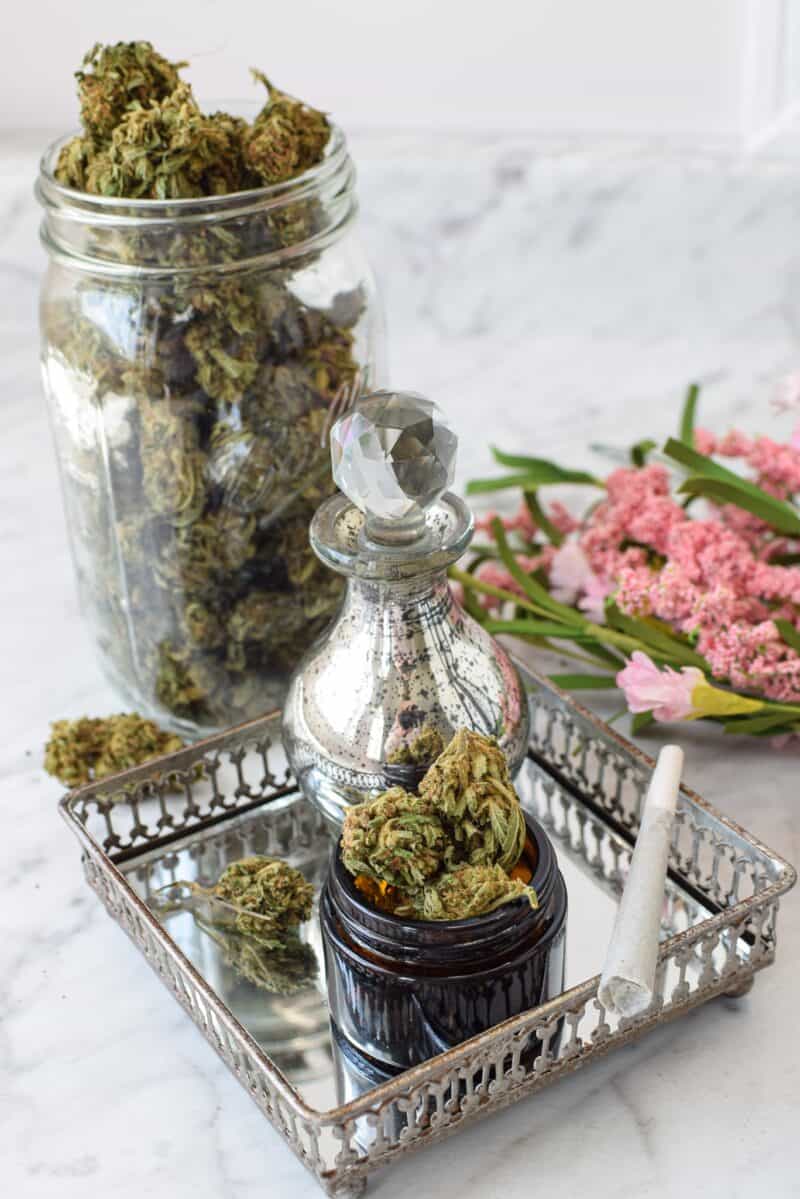
💡This unique balancing act enhances the effects of both CBD and THC and allows for a more tailored experience suited to your unique and individual needs.
How is CBD Different from THC?
CBD and THC are two different compounds entirely.
Unlike THC, which is the compound responsible for the intoxicating effects associated with cannabis use, CBD does not produce an intoxicating effect.
Both CBD and THC interact with the endocannabinoid system, but they do so in ways that produce different results, leading to unique effects and benefits for the user.
🥛 As a registered dietitian, I like to compare CBD and THC to vitamin D and calcium. They’re two totally different things, but they can certainly work better together!

The Science Behind CBD
We know that the reason CBD works is because it has been found to interact with the body’s endocannabinoid system (ECS).
The endocannabinoid system is a network of receptors and messengers that helps regulate various bodily functions, including appetite, sleep, and pain.
Research published in Biomedicines describes the ECS’s purpose in maintaining homeostasis, or balance, within the body and bodily systems.
When you consume CBD, it interacts with the cannabinoid receptors found throughout the body, brain, and central nervous system, providing a range of effects.
CBD doesn’t bind directly to these receptors but instead influences them indirectly, which is one reason why CBD does not produce an intoxicating effect.

Types of CBD Products
CBD is available in so many different forms these days, each designed to suit your distinct needs and preferences.
Remember, there are countless ways to use cannabis, each offering unique effects that will impact how you feel the effects.
Be sure to refer to my guide on different cannabis application methods for more detailed insights into how to tailor your experience effectively.
When choosing the right CBD product, it’s important to consider your specific needs, the time it takes for the product to take effect, and the duration of its effects.
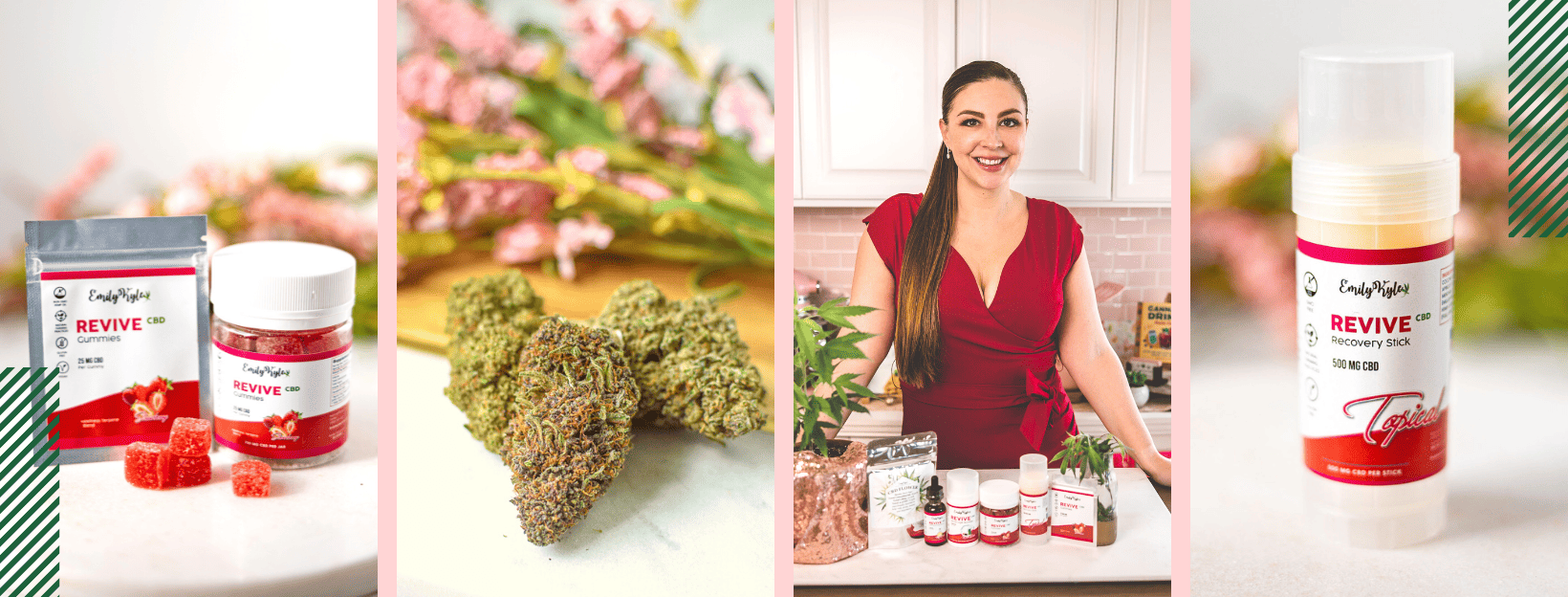
CBD Flower
CBD flower is the raw, unprocessed form of cannabis that contains higher levels of CBD and lower levels of THC.
If the CBD flower contains less than 0.3% THC, the government defines it as ‘hemp’, and if the CBD contains more than 0.3% THC, the government defines it as ‘marijuana’.
In most cases, CBD-dominant flowers will still contain some THC, typically in smaller or trace amounts.
CBD flower does not look any different than traditional THC flower, and in most cases, the only way to tell the difference is through lab testing.
If you are growing or purchasing CBD flower, you should cross-check the lab tests to ensure you are aware of what you are purchasing.
Once you grow or buy CBD flower, there are so many different ways to use it, just like you would with traditional THC flowers.
Vaping or smoking CBD provides one of the quickest ways to feel the effects, as it’s inhaled and absorbed quickly from the lungs into the bloodstream.
It has also become very popular to use CBD flowers to make CBD edibles, as outlined below.
Shop High-Quality CBD Flower
Shop with Emily
Shop Now: Sour Space Candy CBD Flower
Shop with Emily
Shop Now: Lifter CBD Flower
Shop with Emily
Shop Now: White CBG Flower
Oils and Tinctures
CBD oils and tinctures are perhaps the most popular and widely available form of CBD.
These products are typically applied under the tongue with an eyedropper, allowing for fast absorption directly into the bloodstream.
This method potentially provides quick results and offers an easy dosage adjustment.
If you are starting with CBD flower, you can use it to make homemade CBD oil and CBDA tinctures.
From there, you can make CBD oil recipes.
Try These Edible CBD Options
Shop with Emily
Shop Now: CBD Revive Oil
Cannabis Infusions & Extractions
Easy Homemade CBD Oil Recipe
Cannabis Infusions & Extractions
How to Make a CBDA Tincture
CBD Edibles
CBD edibles are a tasty and discreet option for anyone who wants to avoid smoking and is not in love with the oil under-the-tongue experience.
These range from homemade goodies like CBD gummies to CBD butter or chocolate chip cookies.
Since edibles must be digested, it might take longer to feel the effects.
However, this also means that the effects may last longer as the CBD is released slowly over time.
Try Edible CBD Products
Shop with Emily
Shop Now: CBD Wellness Gummies
Shop with Emily
Shop Now: Bliss Beverage Booster
Shop with Emily
Shop Now: Bliss Micro Gummies
Shop with Emily
Shop Now: Bliss MCT Oil
Topical CBD Products
Topical CBD products, such as creams, lotions, and balms, are designed for direct application to the skin.
They might be particularly helpful for localized pain, inflammation, or skin conditions due to their targeted nature affecting the CB1 receptors found on the skin.
The best part is, whether they contain THC or not, they will not make you feel intoxicated, which is reassuring to many first-time users who are hesitant to jump into the world of cannabis.
Shop For CBD Topicals
Shop with Emily
Shop Now: Relief Stick
Shop with Emily
Shop Now: Topical CBD Salve
Shop with Emily
Shop Now: Topical CBD Stick
Shop with Emily
Shop Now: Topical CBD Face Cream
Risks and Side Effects
While CBD is generally regarded as safe and well-tolerated, it is not without potential side effects.
Fatigue is one of the most common issues reported by members of my Well With Cannabis Community, leaving them feeling tired or drowsy.
This could be particularly noticeable for people who are new to CBD or those who have consumed high doses.
Dry mouth, also known as “cottonmouth,” is another potential side effect.
Additionally, changes in appetite are often associated with CBD use. For some, CBD may stimulate appetite, while others may notice a decrease in appetite.
This variability can be attributed to CBD’s complex interaction with the endocannabinoid system, which plays a critical role in regulating our drive to eat.
While these potential side effects pale compared to other medications, it’s still recommended to consult a healthcare provider before starting any new regimen.
It is also essential to ensure that it won’t interfere with any existing medications or conditions, especially those that utilize the Cytochrome P450 pathway.
In Conclusion
After reading through this article, I hope you now see CBD as a fascinating and complex compound with the potential to provide a range of effects.
Whether you’re interested in using CBD for its potential benefits or simply curious due to its popularity, it’s important to do your research and understand the risks and benefits.
I hope that by following the tips and guidelines in this post, you can make informed decisions about incorporating CBD into your life.

Unlock the Secrets of CBD in Just 5-Days…
Dive deep into how CBD and THC can enhance your wellness journey with my immersive 5-day “CBD, THC & Me” workshop. Get expert insights, personalized guidance, and practical advice to help you harness the potential of the plant.
More CBD Guides You Will Love
Cannabis Topicals
Easy Homemade Cannabis Salve Recipe
Cannabis Topicals
Homemade Cannabis Massage Oil
Cannabis Dessert Recipes
Easy Homemade CBD Gummies
CBD Guides & Recipes

